Photos : Olympic Games: Here are 30 significant controversies that remain unforgettable
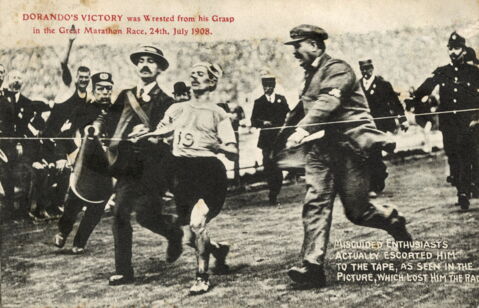
The Italian Dorando Pietri reached the stadium with a large lead in the 1908 marathon. There he was only half a lap of the stadium away from Olympic victory. Due to his complete exhaustion, Pietri had difficulty orientating himself and the judges had to help him cross the finish line.
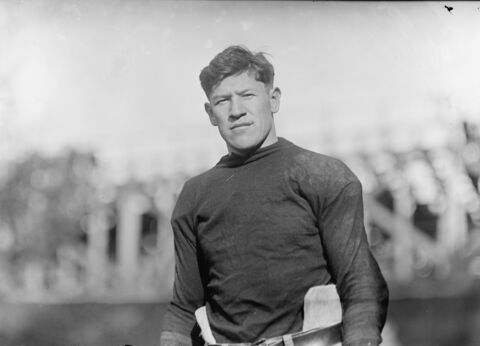
In 1912, Jim Thorpe won gold in the decathlon and pentathlon. He was later stripped of his medals because he had previously played in a semi-professional baseball league for two years and had therefore breached the amateur rules. In 1983, he was posthumously rehabilitated by the Olympic Committee.

Finn Paavo Nurmi was considered the top favourite for the 1932 Olympic Games in Los Angeles. However, he was banned for life shortly before due to a violation of the amateur statute. The trigger is said to have been an overcharge for travelling expenses.
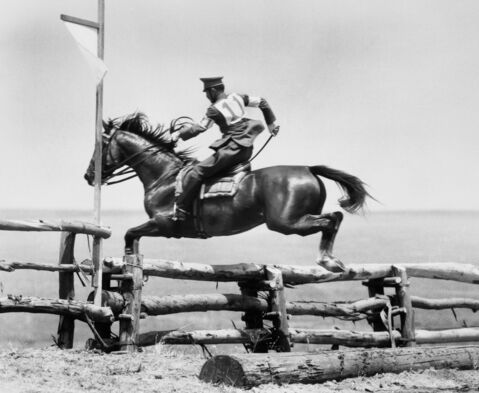
Swedish horse rider Bertil Sandström won a silver medal in equestrian dressage, an event in which a horse and its rider must perform a series of movements. Sandström was, however, stripped of his medal and demoted to last place after officials claimed he illegally ‘clicked’ encouragement to his horse.
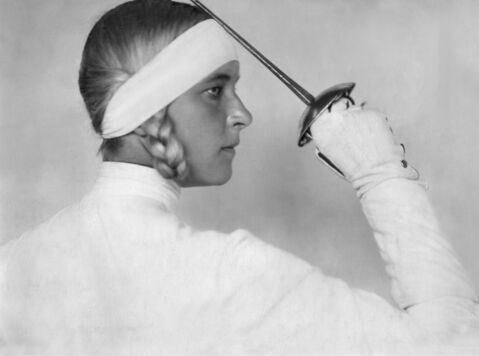
In 1936 in Berlin, Adolf Hitler endeavoured to present the ‘superiority of the German master race’ worldwide. Jewish athletes were excluded from the competitions. Fencer Helene Mayer, whose father was of Jewish descent, was given the opportunity to compete for Germany due to her outstanding performances. After winning the silver medal, she gave the Hitler salute in Berlin's Olympic Stadium.

In the 1956 Olympic water polo semi-final between Hungary and the USSR, there was more at stake than just the sporting competition - political tensions were boiling over due to the suppression of the Hungarian democracy movement by Soviet troops. When a Soviet player injured the Hungarian Ervin Zador, the situation escalated and the match was abandoned prematurely with Hungary winning 4:0.

Siblings Tamara and Irina Press attracted a lot of attention at the 1964 Olympic Games. Together they won gold and silver medals in events such as the discus throw, shot put, 80 metre hurdles and pentathlon. Due to their outstanding performances, questions about the sisters' gender arose time and again.

Hans-Gunnar Liljenwall goes down in history as the first athlete to be disqualified for doping at the Olympic Games when he lost his bronze medal for drinking alcohol before the modern pentathlon competition in 1968.

At the award ceremony for the 200-metre race at the 1968 Olympic Games in Mexico City, Tommie Smith and John Carlos, USA, raise their fists, wrapped in black gloves. In doing so, they show their support to the ‘Black Power’ movement and were penalised by having to leave the Olympic village.
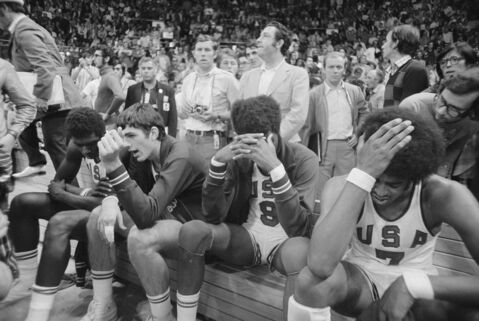
The US basketball team, unbeaten at the 1972 Olympic Games, lost to the USSR in the final after a controversial ending. Despite the Americans' jubilation at their supposed victory, a timing error led to the Soviets scoring the winning basket in the final seconds to win 51-50, prompting the US team to boycott the victory ceremony.

In an incident that has become of the most iconic of all time, American marathoner Frank was just about to finish first when a man came out of nowhere and beat him to it. ABC reporter Erich Segal shouted ‘It’s a fraud, Frank!'—a call that is now famously used.

Soviet modern pentathlete Boris Onishchenko was caught tampering with his sword in Montreal when he used a hidden button to trigger undeserved hits. The cheating led to the disqualification of the Soviet team and Onishchenko's lifetime ban.
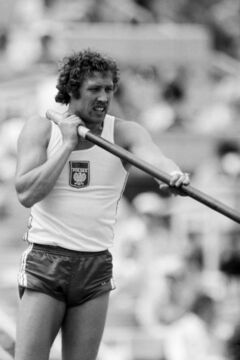
During the 1980 Olympics hosted in Russia, Polish pole vaulter Władysław Kozakiewicz repeatedly mocked by the crowds, who were mostly Russian. When he broke the world record, he proceeded to then give ‘the arm’ to the crowd—which is an an insulting gesture in several parts of the world.

The German National Olympic Committee, together with the USA and 61 other allies, decided to boycott the 1980 Summer Olympics in Moscow. This was due to the Soviet invasion of Afghanistan. In response, the USSR stayed away from the Summer Games in Los Angeles four years later.

The 1984 women's marathon in Los Angeles provided some dramatic moments when Gabriele Andersen Schiess entered the stadium completely exhausted and dehydrated. After almost 42 kilometres, she dragged herself swaying and exhausted to the finish line, while the helpers were unsure how to react.
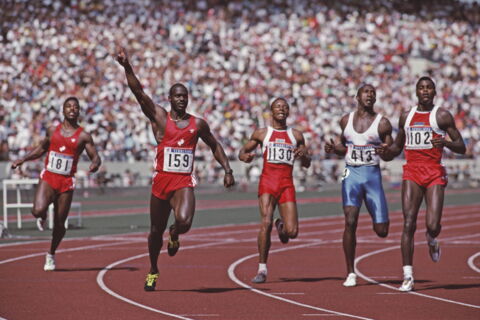
The 100-metre final at the 1988 Olympic Games in Seoul was a memorable moment: Ben Johnson from Jamaica outdid his rival Carl Lewis from the USA in an impressive 9.79 seconds and was convicted of doping the next day.

At the 1988 Olympic Games, boxing legend Roy Jones Jr. suffered a controversial defeat in the final against Si-Hun Park as a 19-year-old, despite convincing dominance. The scandalous victory for the South Korean in front of his home crowd shook the boxing world.
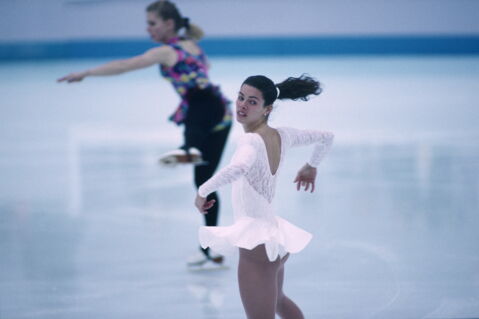
A scandal that is talked about to this day, figure skater Nancy Kerrigan was attacked seven weeks before the Winter Olympics. It was then discovered that Tonya Harding's ex-husband hired the attacker and that Harding knew all along.

1998 was the first year snowboarding was part of the Olympics. Canadian athlete Ross Rebagliati won first place, but was disqualified after he tested positive for using marijuana. In a strange turn of events, his gold medal was the reinstated after officials concluded that marijuana was not in the list of unauthorized substances.
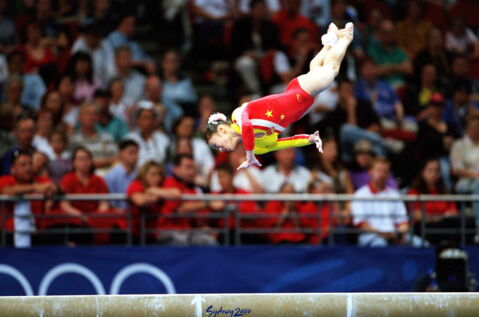
During the Olypmics in Sydney, the vault was set too low for the vault events. The error has gone down in history as one of the biggest mistakes made in the history of the Olympics.

Marion Jones won five medals at the 2000 Olympic games, 3 of which were gold. After years of speculation that she used performance enhancing drugs, she finally confessed in 2007. She was taken off of all Olympic records and sentenced to jail for 6 months for perjury.
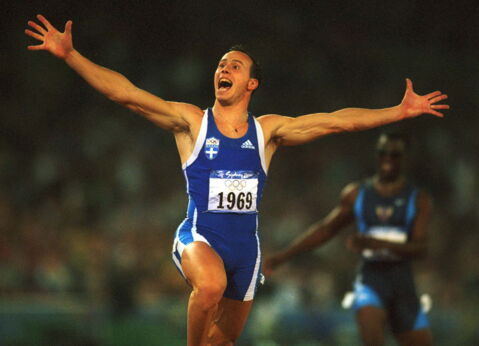
Before the Olympic Games, Greek sprint stars Kostas Kenteris and Ekaterina Thanou missed a doping control and claimed to be involved in an accident, which led to their exclusion and later to a two-year ban.

Brazilian marathon runner Vanderlei de Lima was attacked by a man, who was mentally disabled, during a race. The runner who was actually taking the lead was pushed into a crowd, and when he found his footing, he ended up in third position.
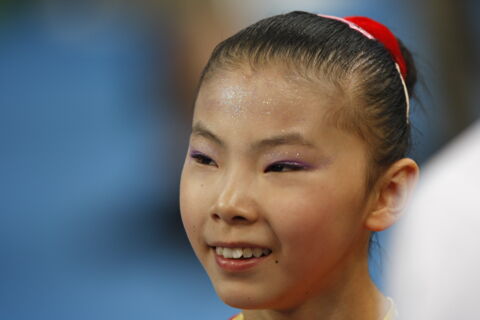
At the 2008 Olympic Games in Beijing, the remarkably young-looking Chinese gymnasts aroused suspicion about their age, especially the double gold medallist He Kexin (photo). Suspicions of age manipulation were raised, but remain unresolved.

At the 2008 Olympic Games, Cuban taekwondo fighter Angel Valodia Matos became a controversial figure after an injury and subsequent disqualification by Swedish referee Chakir Chelbat. His reaction, a kick to the referee's face, lead to his lifetime ban.

At the 2012 Olympic Games in London, eight female badminton players were disqualified for match-fixing in the doubles competition as they attempted to face easier opponents in the knockout round.
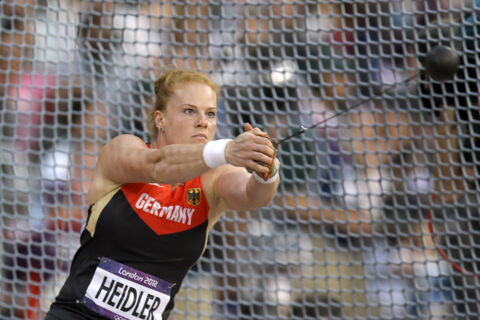
Betty Heidler experienced drama at a competition when her hammer throw distance was mistakenly lost and a competitor's shorter distance was initially displayed under her name. After her protest and an initially unsuccessful search, her real distance of 77.12 metres appeared on the computer, which ultimately earned her the silver medal after the original winner was found guilty of doping.

In Rio 2016, the Cariocas showed their passionate but also wild side when they booed the French Olympic pole vault champion Renaud Lavillenie to support the Brazilian athlete Thiago Braz da Silva, who eventually won gold with 6.03 metres, while Lavillenie took silver.
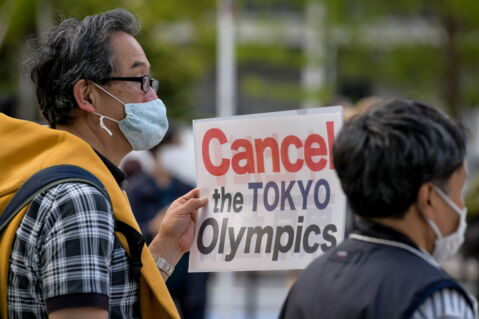
The Olympics, planned for 2020, had to be rescheduled to 2021 after the coronavirus pandemic shook the world. Japanese citizens, however, were not inclined to open up their home and country to the world yet. There were several protests held to scrap the games. The Olympics, however, went as planned.

Russia was banned from entering its participants in the Tokyo Olympics and Winter Olympics after it was revealed that there was a ‘state-sponsored’ doping program between 2011 and 2015.
